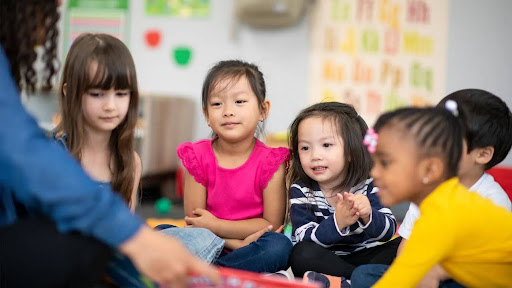In the dynamic landscape of education, where the emphasis is not solely on academic achievement but also on holistic student development, social-emotional learning (SEL) has emerged as a cornerstone. With the recognition that a student’s emotional well-being profoundly impacts their academic success and overall life outcomes, schools are increasingly prioritizing SEL initiatives. However, the successful implementation of social-emotional learning in schools relies heavily on the expertise and dedication of educators. Comprehensive training programs focused on social-emotional learning must equip teachers with the necessary skills and strategies.
Understanding Social-Emotional Learning
Before delving into the significance of training programs for teachers, it’s crucial to grasp the essence of social-emotional learning. SEL encompasses a range of skills that enable individuals to understand and manage emotions, set and achieve positive goals, feel and show empathy for others, establish and maintain positive relationships, and make responsible decisions. These competencies are foundational not only for academic success but also for navigating life’s challenges effectively.
The Role of Teachers in Social-Emotional Learning
Teachers serve as the frontline facilitators of social-emotional learning in schools. Beyond imparting academic knowledge, they are pivotal in nurturing students’ emotional intelligence, resilience, and interpersonal skills. However, effectively incorporating SEL into classroom practices requires specialized training and ongoing professional development.
The Need for Training Programs
Enhancing Teacher Competence: Social-emotional learning training programs provide educators with a deep understanding of SEL principles, theories, and evidence-based practices. By equipping teachers with comprehensive knowledge, these programs empower them to create nurturing, inclusive classroom environments conducive to emotional growth and academic success.
Building Pedagogical Skills: Effective implementation of SEL involves integrating social-emotional learning into various teaching and classroom management aspects. Training programs offer teachers practical strategies for embedding SEL into their lesson plans, fostering positive relationships with students, managing conflicts constructively, and promoting a culture of empathy and respect.
Addressing Diverse Student Needs: Every classroom comprises students with unique backgrounds, experiences, and socio-emotional challenges. Along with the teen program, training programs equip teachers with the skills to recognize and respond sensitively to diverse emotional needs, fostering a supportive learning environment where every student feels valued and understood.
Key Components of SEL Training Programs for Teachers
Foundational Concepts: Introducing teachers to the core principles and competencies of social-emotional learning, including self-awareness, self-management, social awareness, relationship skills, and responsible decision-making.
Evidence-Based Practices: Equipping teachers with research-backed strategies and interventions for promoting social-emotional development, such as mindfulness exercises, conflict resolution techniques, cooperative learning activities, and restorative justice approaches.
Collaborative Learning Communities: Providing opportunities for teachers to collaborate, share best practices, and engage in reflective discussions about their experiences with SEL implementation. Peer support and mentorship can enhance the effectiveness and sustainability of SEL initiatives.
Integration with Academic Curriculum: Demonstrating how social-emotional learning can seamlessly integrate into existing academic subjects, enriching students’ learning experiences and promoting holistic development across all domains.
Impact and Benefits
Improved Classroom Climate: Teachers who undergo SEL training are better equipped to create safe, supportive learning environments where students feel valued, respected, and emotionally secure. This positive classroom climate enhances academic engagement, reduces disruptive behavior, and fosters a sense of belonging among students.
Enhanced Student Outcomes: Research indicates that students who receive 1-1 teen coaching and high-quality social-emotional learning instruction demonstrate improved academic performance, higher graduation rates, and better long-term life outcomes, including greater success in college and careers.
Stronger Teacher-Student Relationships: SEL-trained teachers develop deeper connections with their students, fostering trusting relationships built on empathy, mutual respect, and understanding. These strong bonds enhance communication, facilitate effective classroom management, and promote student motivation and self-confidence.
Reduction in Discipline Issues: By equipping teachers with effective strategies for managing conflicts, resolving disputes, and addressing behavioral challenges proactively, SEL training programs contribute to a reduction in disciplinary incidents and suspension rates, creating a more peaceful and harmonious school environment.
The Bottom Line
Social-emotional learning in schools is pivotal, and training programs for teachers are instrumental in fostering a culture of empathy, resilience, and academic excellence. By equipping educators with the knowledge, skills, and strategies to promote students’ social-emotional development, these programs enrich classroom experiences and empower students to navigate life’s challenges with confidence and compassion.

